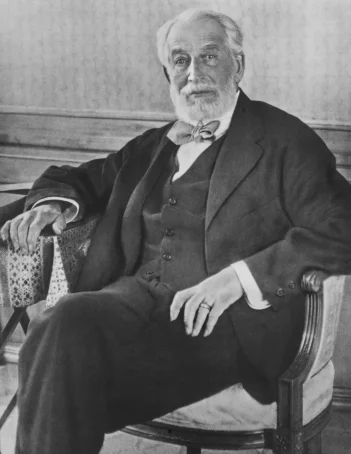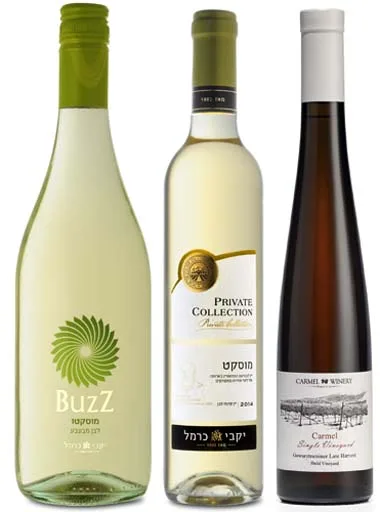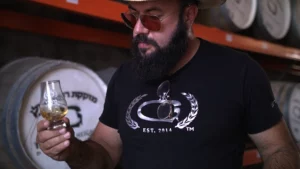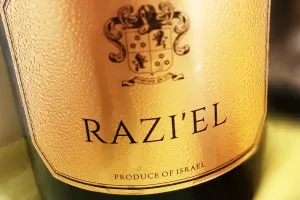natural for white wines. Now we arrive at Rosh Hashanah. This is the festival where we eat sweet things to wish ourselves a sweet year. So for me, the obvious choice of wine to drink is a sweet one. It will go with all the sweet dishes served including the Challah dipped in honey, the traditional apple and honey, dates and sweet carrot dishes which begin the festive meal. They will even go well with the Gefilte Fish, matching the sweetness and yet toning down the heat of the horseradish. Of course, mention the word sweet with regard to wine, and many will roll their eyes and grimace. The fact is that sweet is a term that turns many people off. If it is sweet, it must be a bad wine and if someone likes sweet wine, they are not like us, who understand wine! Well, I am pleased to inform you that not all sweet wines are Manischewitz, Palwin or King David. These Kiddush wines remind us of religion and ritual and everyone has experienced sweet wines tasting more of sugar water than grapes. That is why the better sweet wines are called dessert wines, which sounds more acceptable. Funnily enough, sweet wines are far more popular than anyone will admit. At our visitors center when we offer a tasting of Muscat or Moscato, a purchase is more or less assured. This is simply because these wines smell and taste nice. There is no astringency, or sourness and people buy because they like them. I was recently interviewed on air, and after explaining and tasting all our best wines, including award winners, the interviewer admitted his favorite wine was the sweet wine, or rather, I should say, the dessert wine! He said he would be quite happy drinking it throughout the meal, and then semi retracted because he thought it was not the right thing to say Well, he should not be ashamed. We have ketchup with food. That is sweet. Some people drink coca cola with food. That is very sweet. Furthermore many people have sugar in their coffee, and some have many spoonfulls to counteract the bitterness. These people have ultra-sensitive palates and are far more likely to be women than men. If they represent 20% of the wine drinking market, are we not flexible enough to allow them to drink wine too Why shouldnt they drink sweet if they want to It is aromatic, smells attractive and a good one will be delicious. The French are supposed to understand wine arent they Well, they drink Sauternes for an aperitif before a meal. That is a very sweet wine and no-one looks down their noses at them. All I am suggesting for Rosh Hashanah is to do the same. Use a sweet wine as an aperitif and with the starters. Then you can revert to some good table wines for the main courses. As for those who prefer sweet, this is your festival. Drink it through the meal. There are four ways of making dessert wines. The most obvious is from late harvested, overripe grapes. The extra ripeness provides the extra sweetness, but it only works if balanced by good acidity to ensure it is not too sweet and cloying. The next is from grapes affected by Noble Rot or Botrytis, which is a fungus that attacks the skins of the grape. The grapes shrivel to a point that they look disgusting. This particular rot affects the grapes in a certain way. The water content is reduced and the honeyed aromas are concentrated. The result is a luscious dessert wine, just like the Sauternes made in Bordeaux. The most traditional way of making dessert wines is to lay the grapes on straw mats to dry out, shrivel, lose moisture and gain concentration. This is what they did in Biblical times and it is a method still used today, particularly in Italy and nearby Cyprus and Greece. The final way is by picking frozen grapes on the vine. Think of cold climates and Icewine from Canada or Eiswein from Germany. The water content freezes leaving the juice very sweet and unctuous. Another type of sweet wine is a fortified wine. The usual method of making these is by fortifying during fermentation by adding grape spirit. This stops the fermentation and leaves the wine sweet and strong. Port and Madeira are fortified wines made this way. Another way is for the wine to be fortified after fermentation, and this is how sherry is made. The most common way in Israel is to make a Vin Doux Naturel. This is not a natural sweet wine like the name would imply, but the sweetness is natural. These wines have alcohol added to arrest the fermentation, leaving unfermented sweetness. For those sweet wine sceptics, I want to remind you that some of the greatest, rarest and most expensive wines in the world are sweet wines. Also in Israel, we have some particularly good ones. It is a style of wine Israel makes really well. Obviously for the festival I would select a slightly better quality sweet wine than the usual Kiddush wine, because after all it is the Jewish New Year. Lets honor the festival with a wine upgrade. This could range from an inexpensive and fun Moscato to a fortified Muscat, up to a high quality dessert wine made from Gewurztraminer. Moscatos are light, frothy, grapey, semi-sweet wines and they are low alcohol. There are many with brand names like Buzz, Dalton, Hermon, Selected and Teperberg. For those who fear that sweet means fattening, it is the alcohol that is more significant to weight watchers than the degree of sweetness in the wine. The Muscats are richer, very aromatic and with mouth filling flavor. They are usually fortified to 14% alcohol. The best are produced by Binyamina, Dalton, Private Collection and Yarden. Most of the Muscats and Moscatos are made from the Muscat of Alexandria grape variety, which is indigenous to the Eastern Mediterranean. It is a large grape, more commonly known as a table grape for food. However it has been in our area for a long time and may even go back to Biblical times. The best dessert wines have coincidentally each been made from Gewurztraminer grapes. Binyamina, Carmel, Golan Heights and Tzora have produced delicious dessert wines in different ways. The Binyamina Reserve Gewurztraminer is made from individual clusters. The Carmel Shaal Gewurztraminer is a late harvested single vineyard wine. The Yarden HeightsWine, a play on the words Icewine and Golan Heights, is produced from Gewurztraminer grapes, which are then frozen at the winery. Tzora Or is only produced in special years. They each represent great value and are all outstanding having received either international recognition or quality awards. They will express, in different degrees, delicate aromas of peach, pear, lychee and apricot, backed by honeyed flavors with a pronounced thread of acidity to keep them from being to cloying. Remember dessert wines normally come in smaller format bottles, in sizes of half bottles (375 ml) or half liter (500 ml.) They are normally well priced and people tend to drink less because they are sweet. They are wines to sip and savor rather than to quaff. I always recommend serving a dessert wine served ice cold. Put it in the freezer, but dont forget it. As for the wine glass, use the normal glass you have, just pour slightly less than you would normally. A white wine size glass (slightly smaller) is ideal. However avoid the awful schooner, sparkling wine flutes or small liqueur glasses so often used by leading restaurants here. A Sweet wine for a Sweet year. Shana Tova!


















